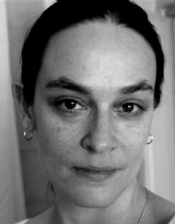Breathe is a collection that explores the heart of Fidel Castro-era Cuba; an outsider's look that is balanced by a weight of empathy to illuminate truths that lie couched between the island's propaganda and the Western media's portrayal. Characters from Europe and the USA in Swimming, Taxi and Sabbatical seem to want to hold on to the indulgences that their countries offer them, while praising Cubans for the more abstemious lives they lead and seeking to sample what the locals experience; in Siempre Luchando, I Never See Them Cry and The Party, romantic liaisons strengthen or buckle under the strain of the minute exploitations that result from the assumptions one makes about the other; the seedy sexual aggression of Luca's Trip to Havana is undercut by the subtle yet intense lust of Breathe; while Leaving Cuba, with its closing image of Havana's night sky, is as eloquently balanced a tale of the lives of everyday Cubans as you will read in a long while - whichever path one takes, something is lost. As Aida Bahr, winner of Cuba's Premio de la Critica Literaria says, "relying more on subtleties than on drama, [Segal] portrays the tensions and struggles, but also the joy and warmth, that fill Cubans' lives."
AUTOR/A
SEGAL, LEILA
I was born in London, of Polish, Lithuanian and Romanian descent. When I was little, I started to write. Breathe: Stories from Cuba is my debut collection, and originates in the time I lived in Havana and the Pinar del Río province of Cuba. I visit the island regularly, and am working with writers there to develop a Spanish/English flash fiction and poetry broadsheet. Breathe is out on 21 January 2016 with Flipped Eye. My writing has been published in magazines and journals including Wasafiri Magazine, Generations Literary Journal, Papeles de la Mancuspia, Loose Muse Anthology, Square Peg, and Ink, Sweat & Tears. You can hear me talking about my work on Literary South here and read an interview with me here. In 2008, I led the Jaffa Photography Project, with Arab-Jewish collective Sdaka Reut: we used word and image to bring together Arab and Jewish teenagers in workshops exploring their relationship to each other and to the land they both call home. I am director of Voice of Freedom, a project with formerly trafficked women. Voice of Freedom enables women who have escaped their captors, and sometimes given evidence against them, to use text and photography to talk about their lives. There's an interview with me about the project at Huck Magazine, and I talk about it on Resonance FM here.



